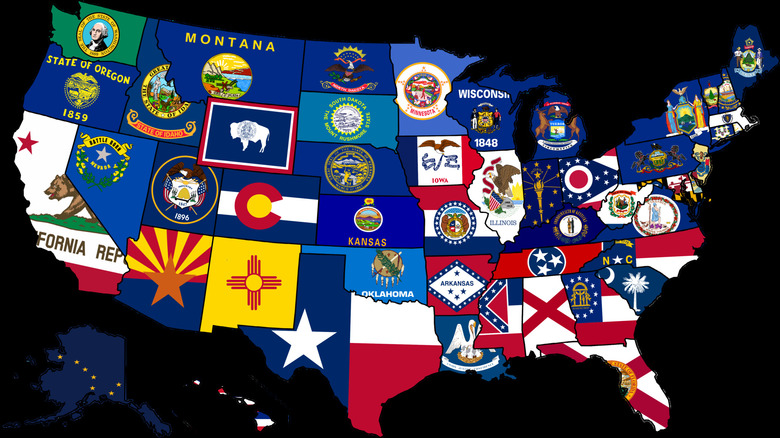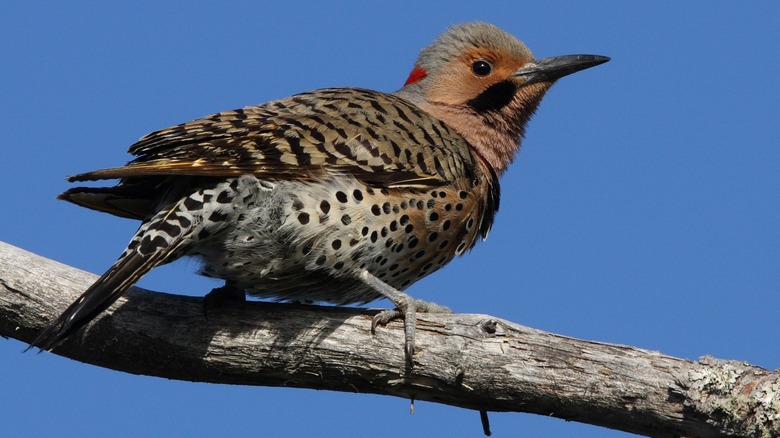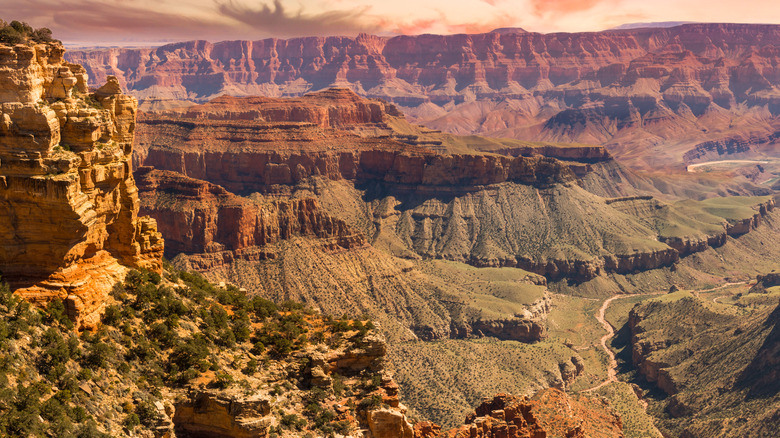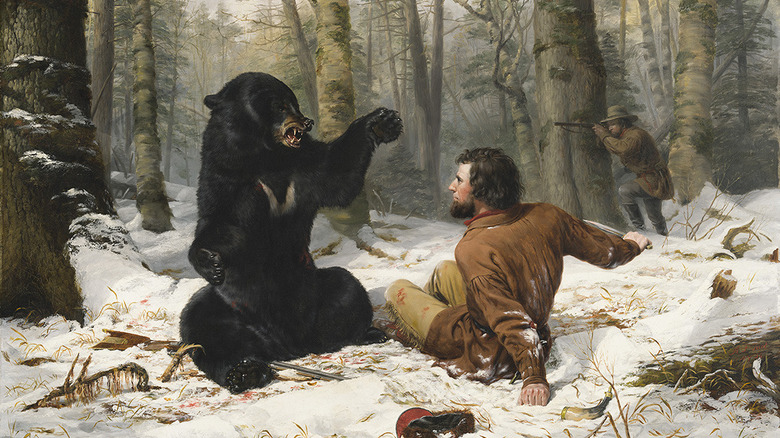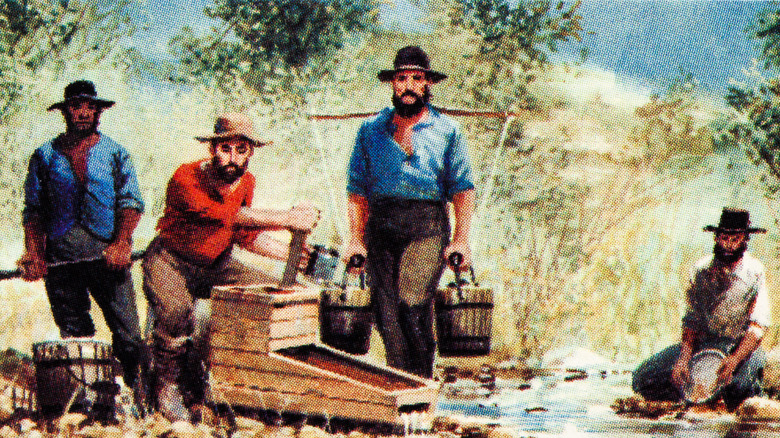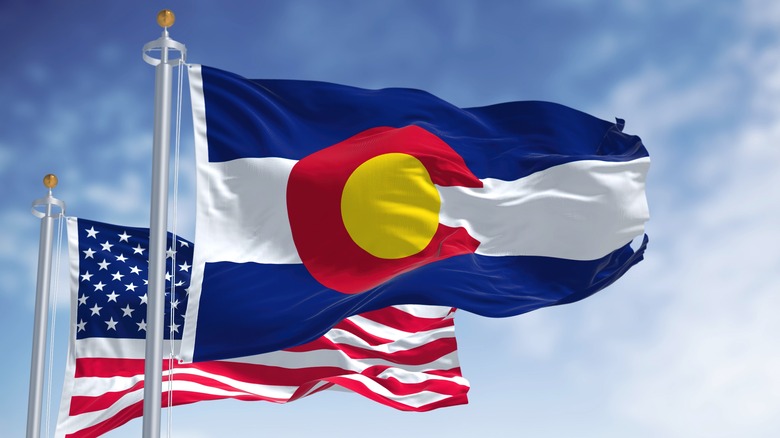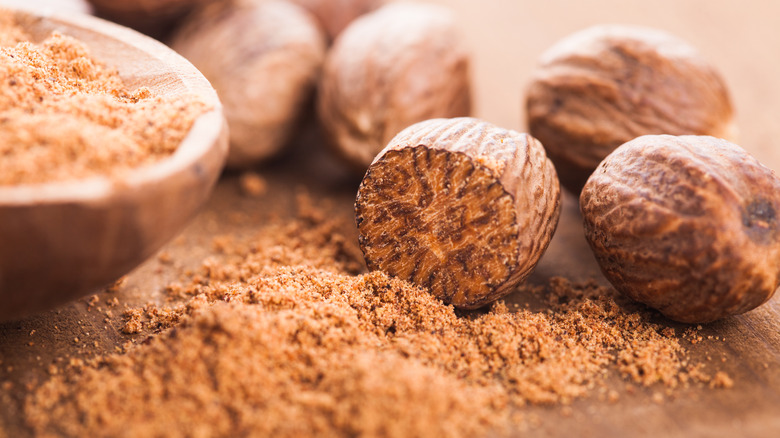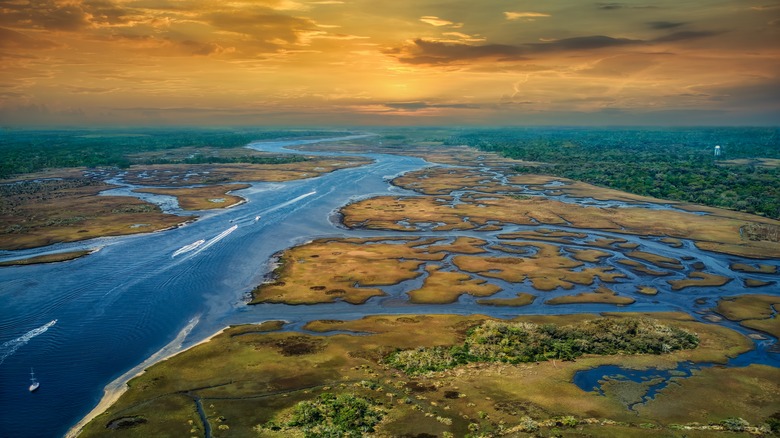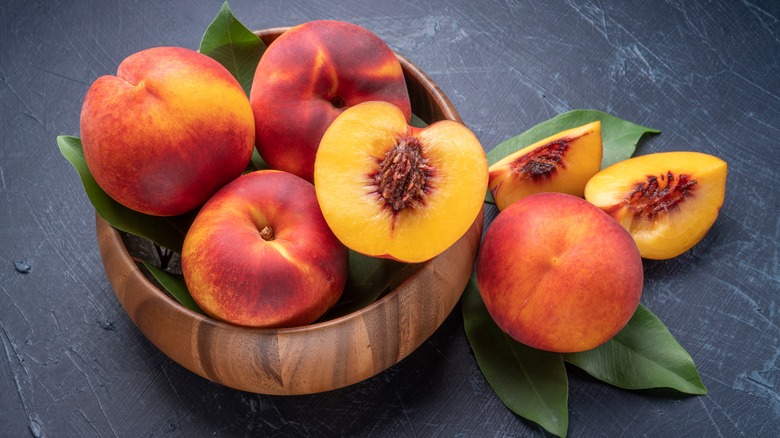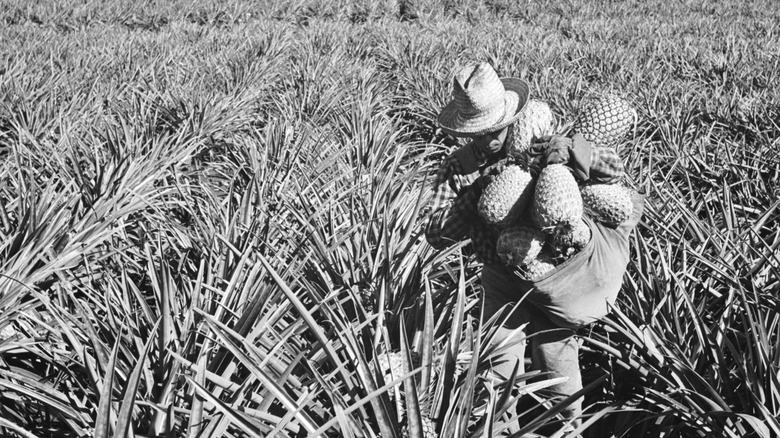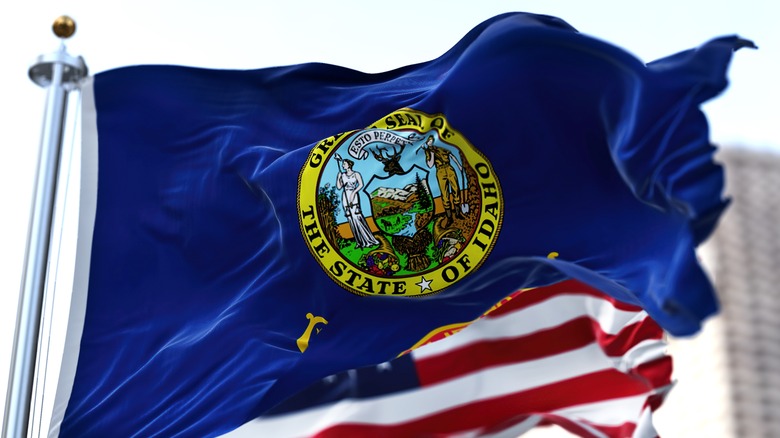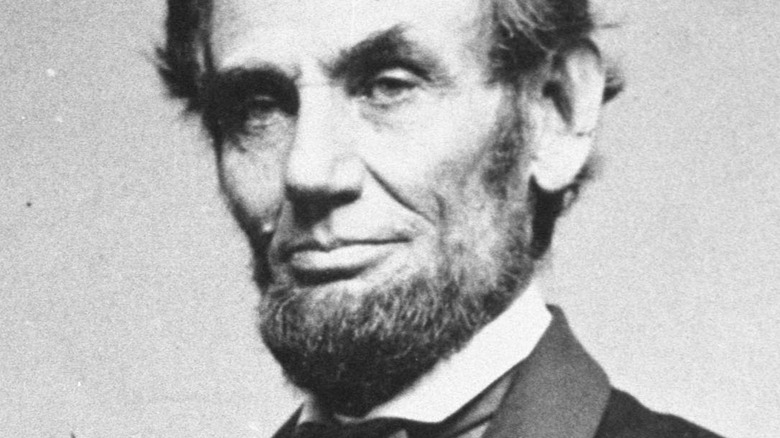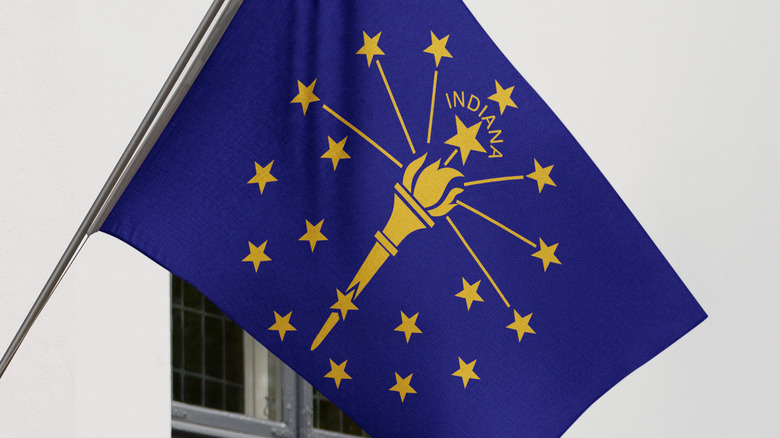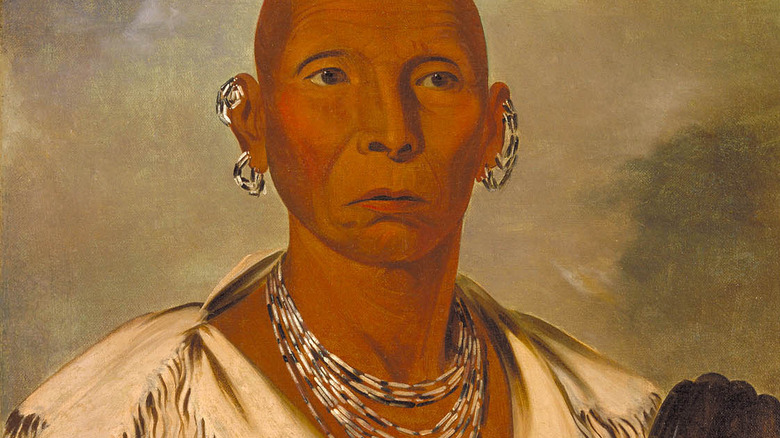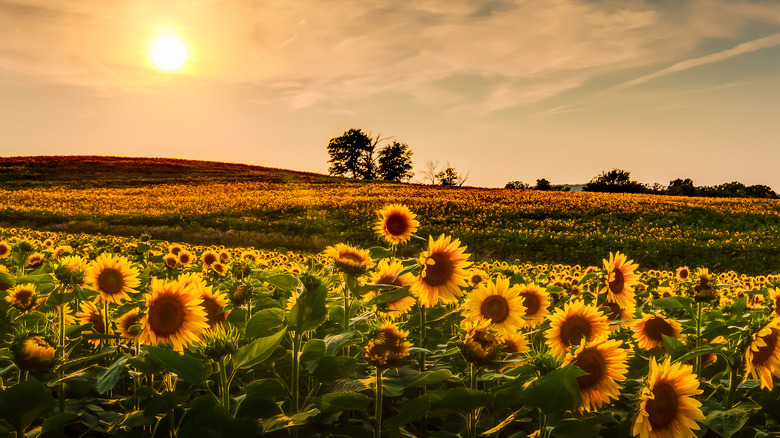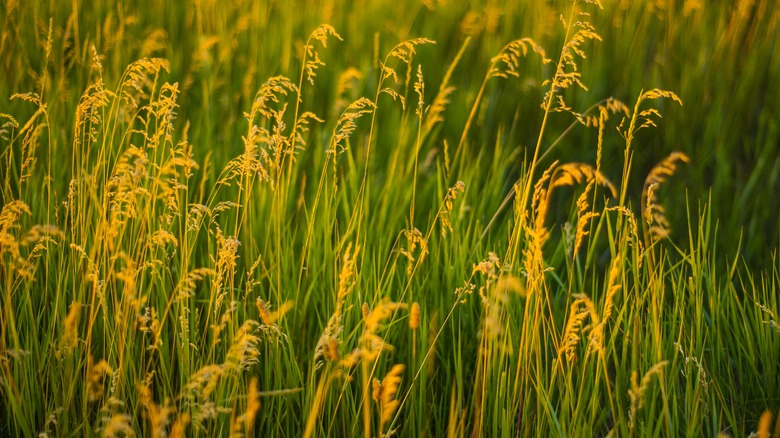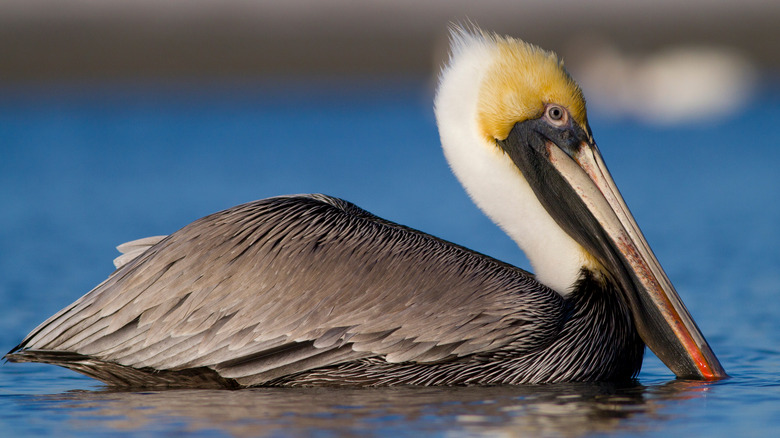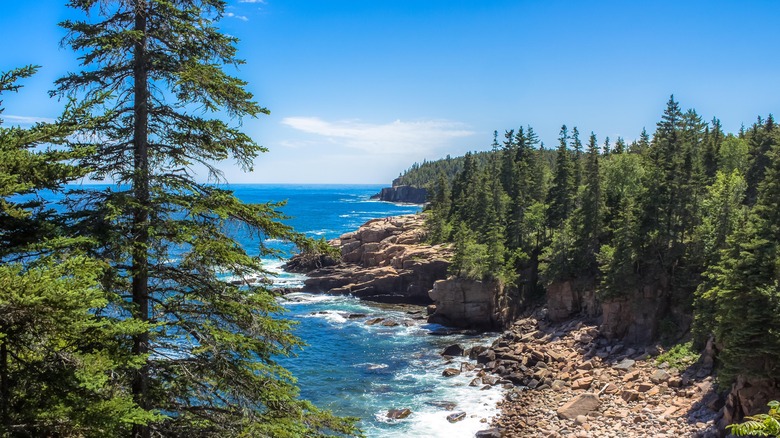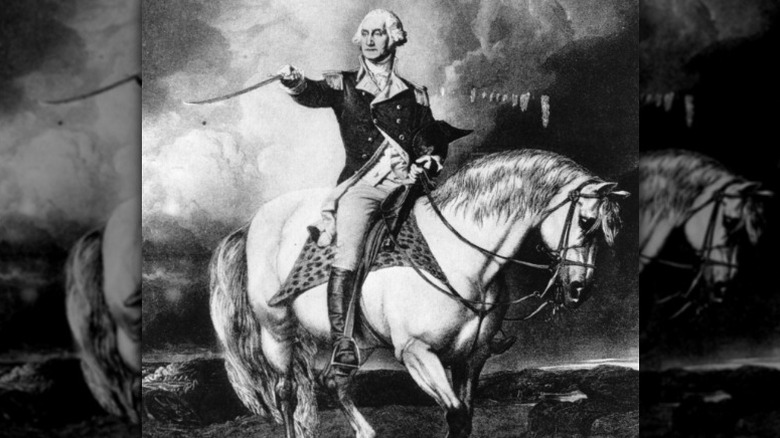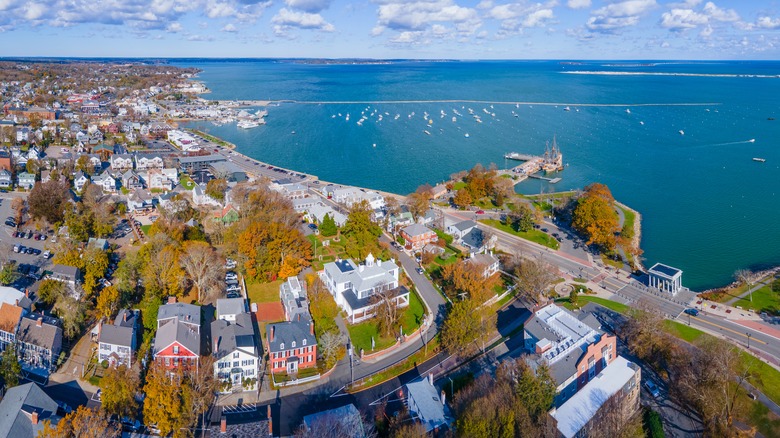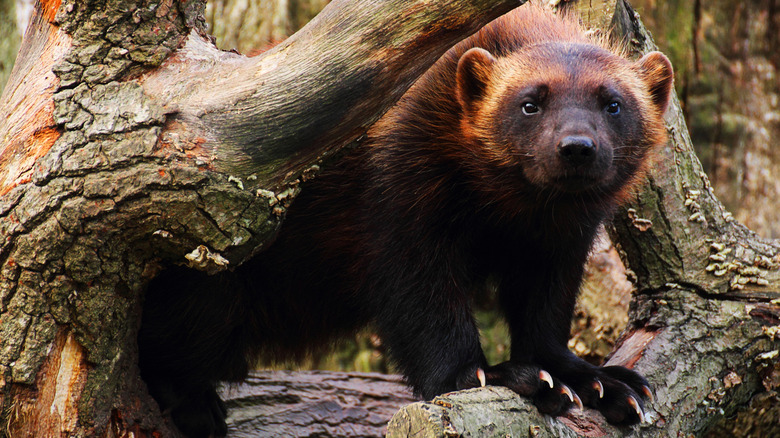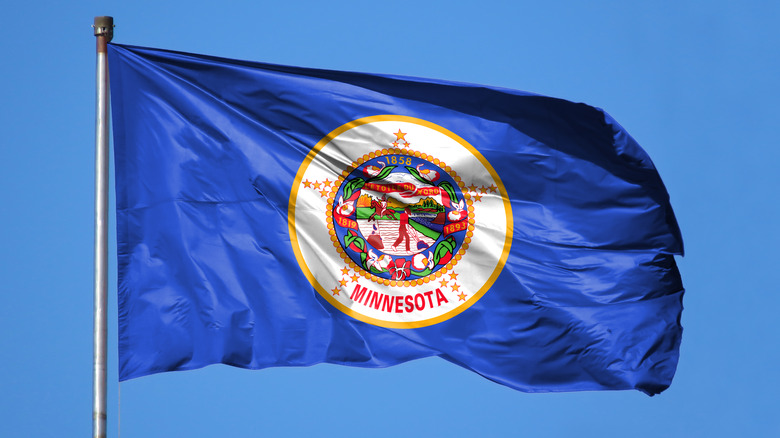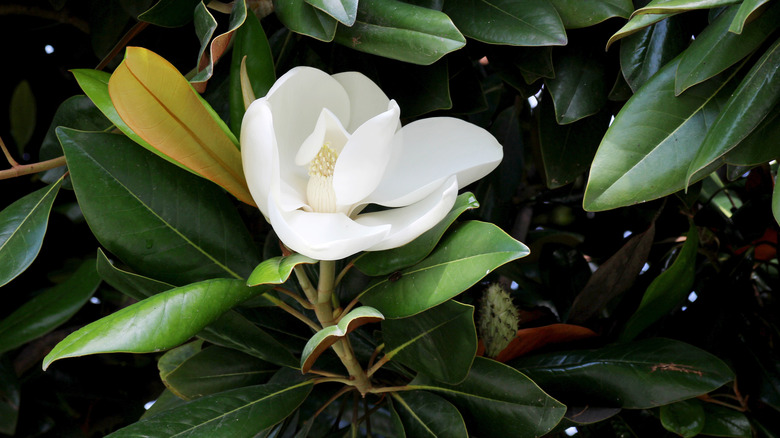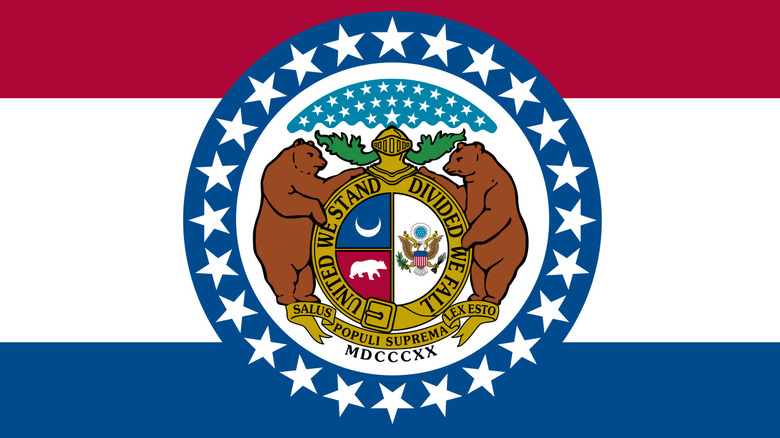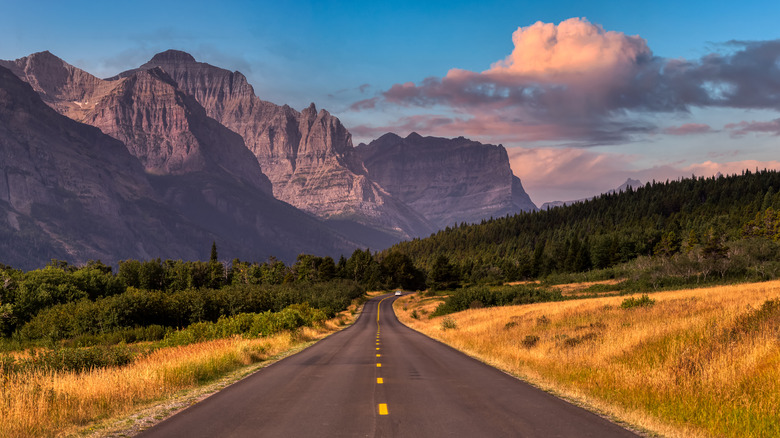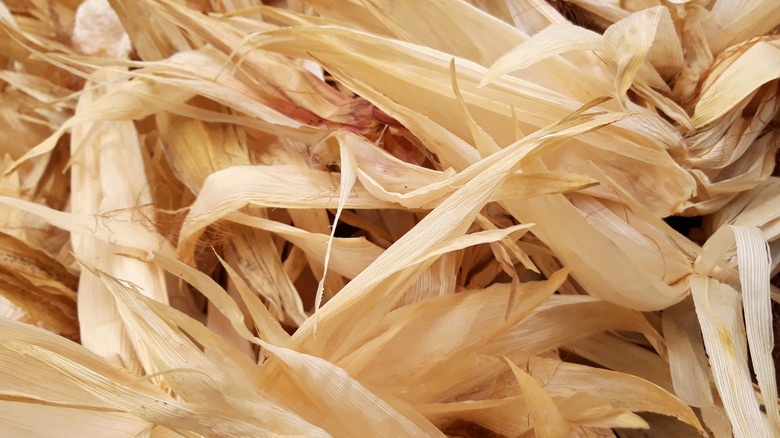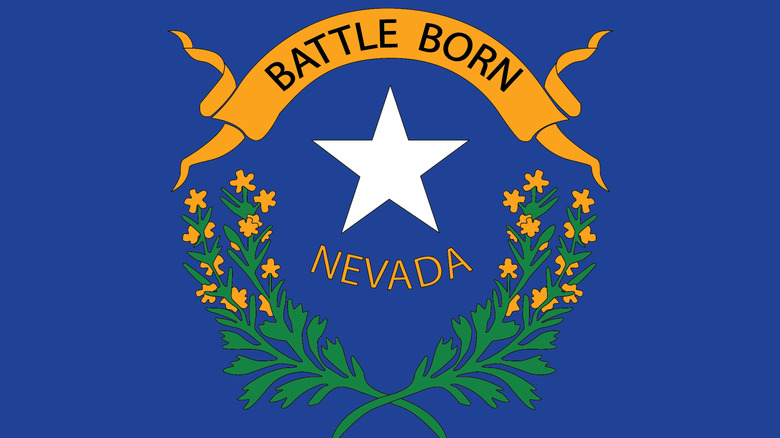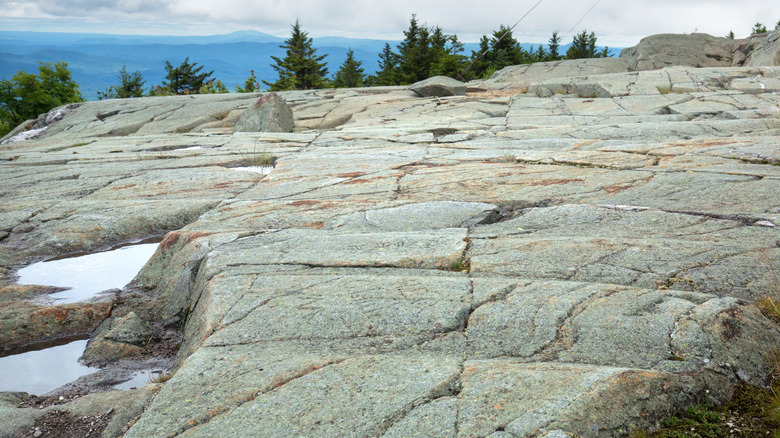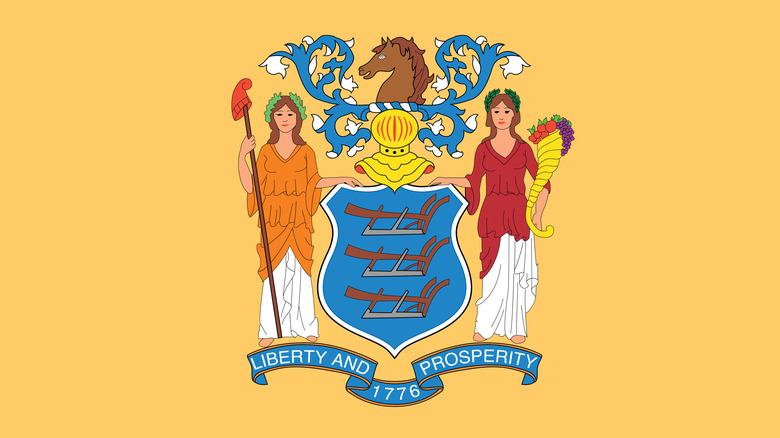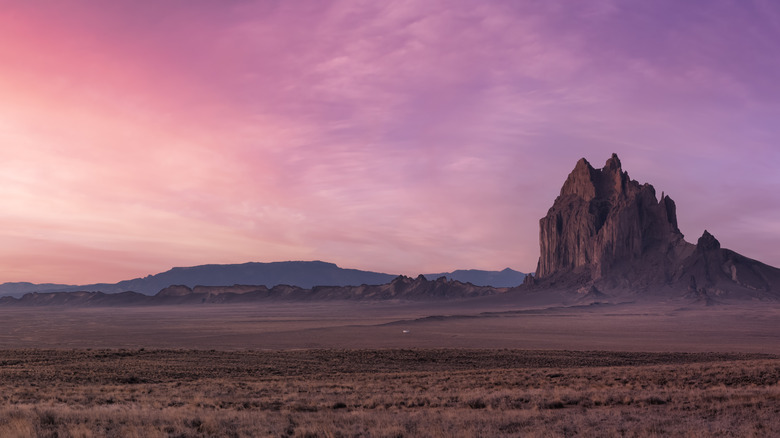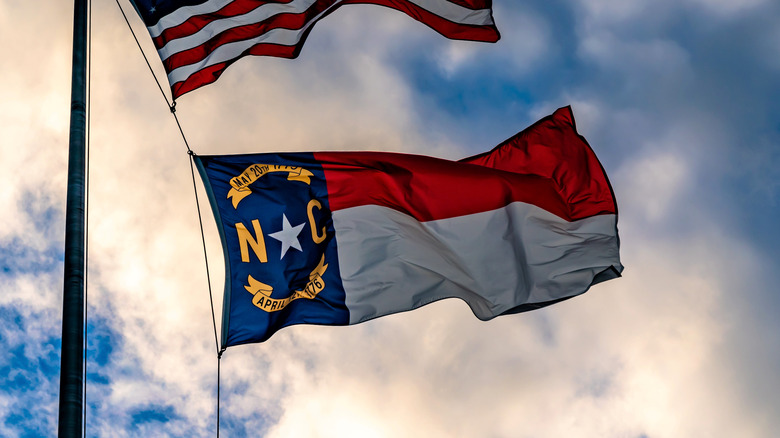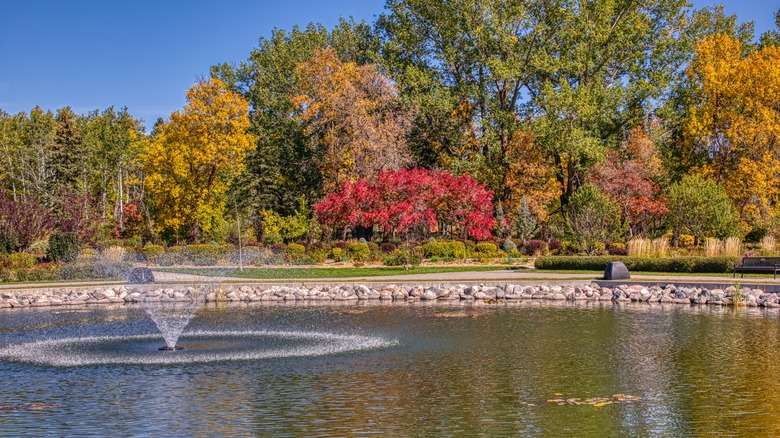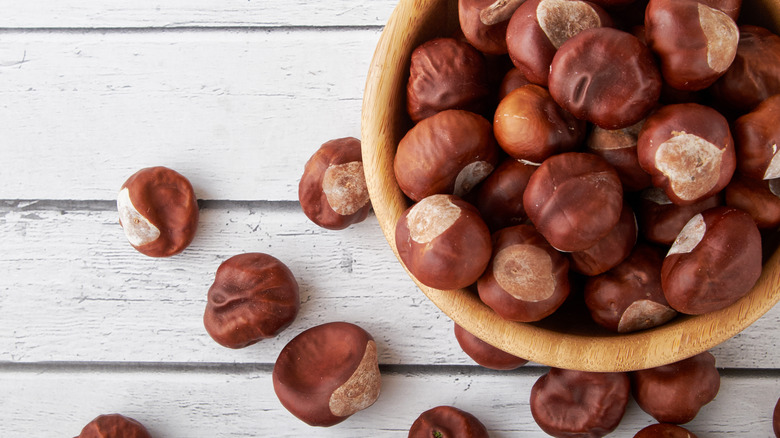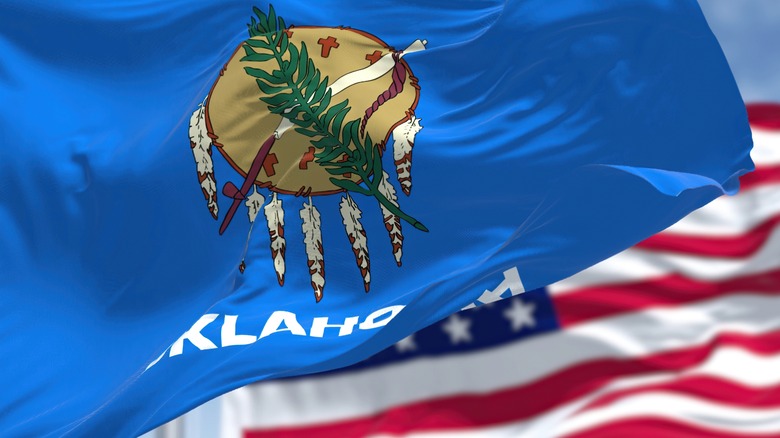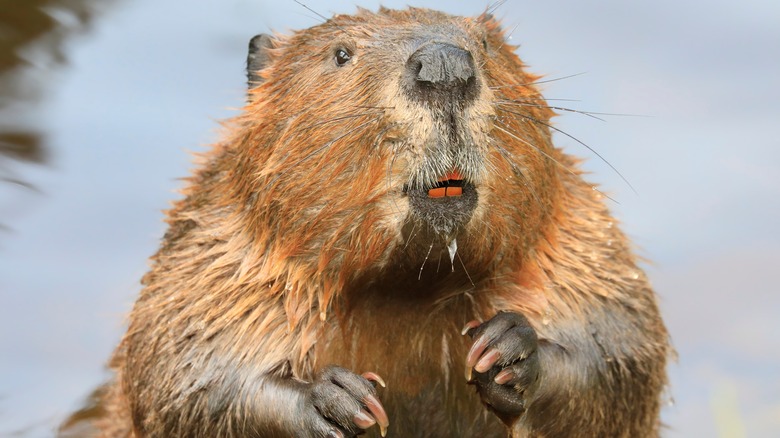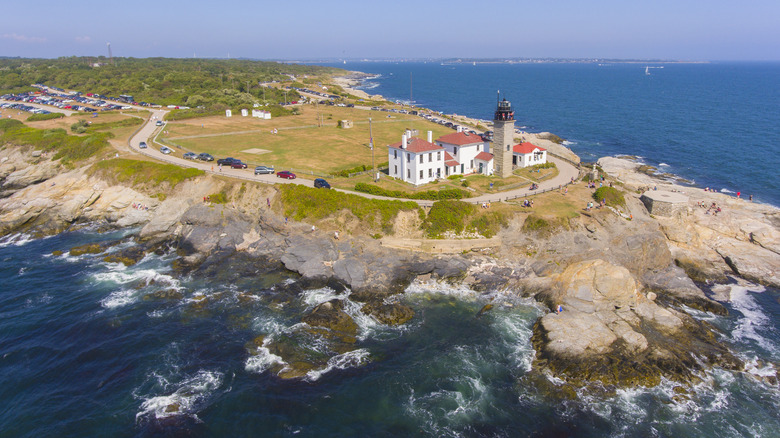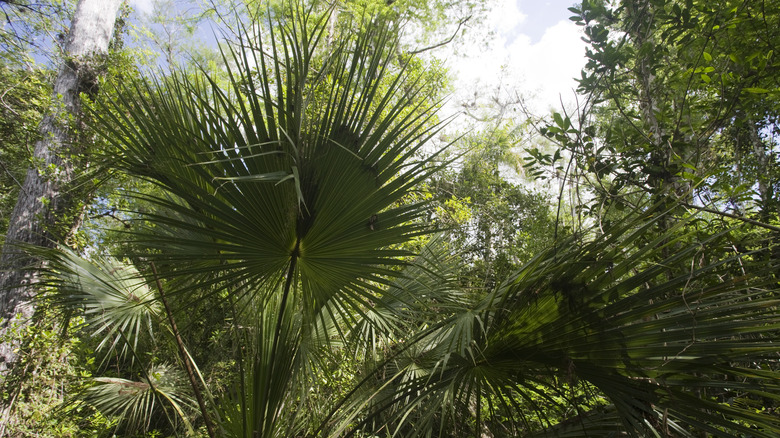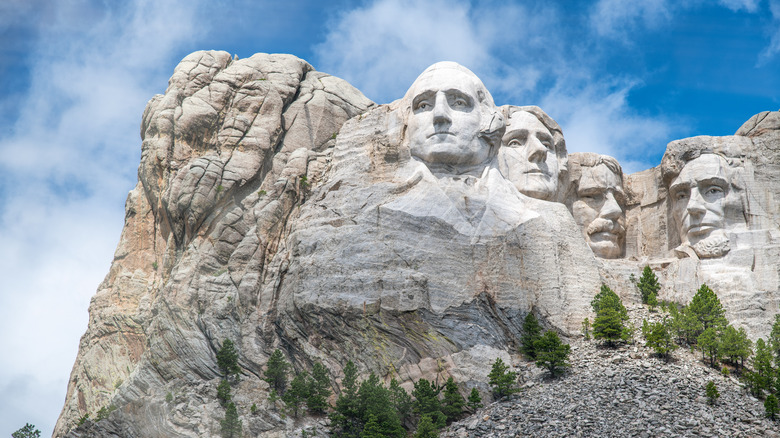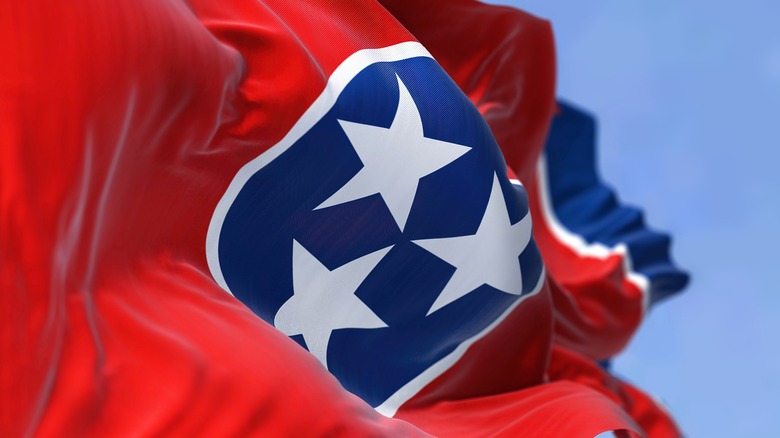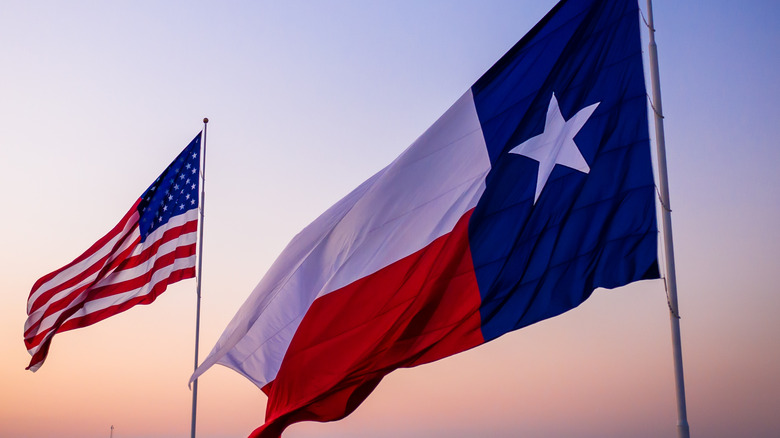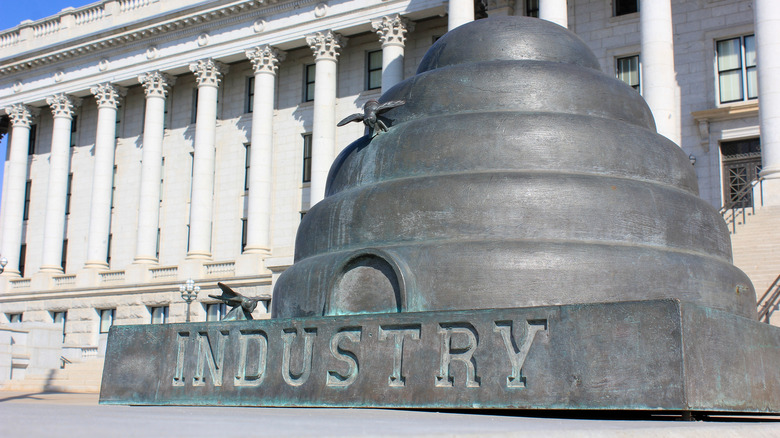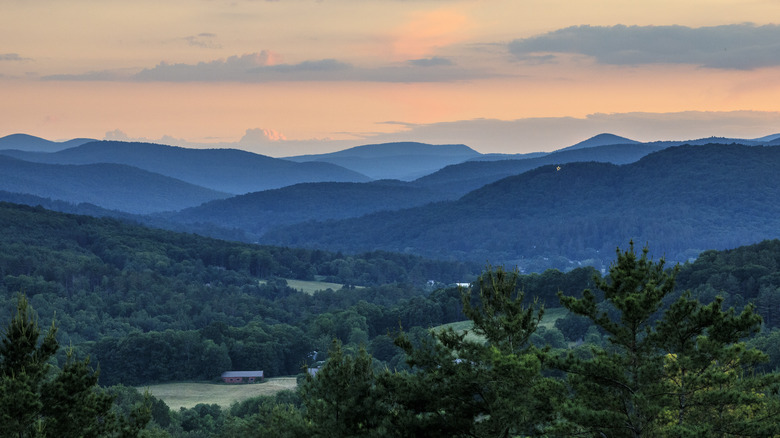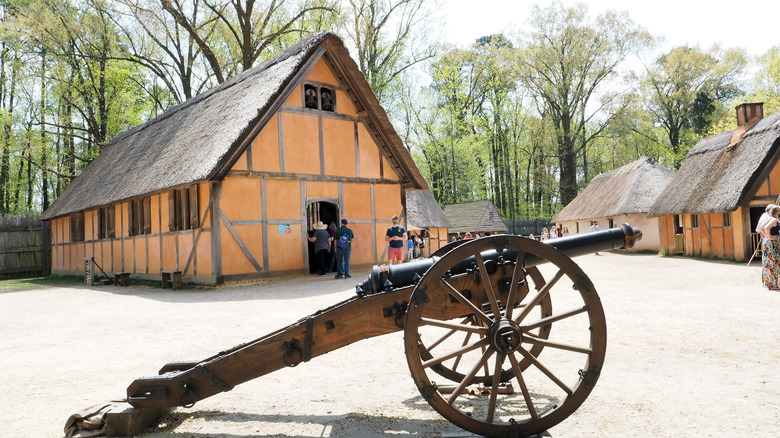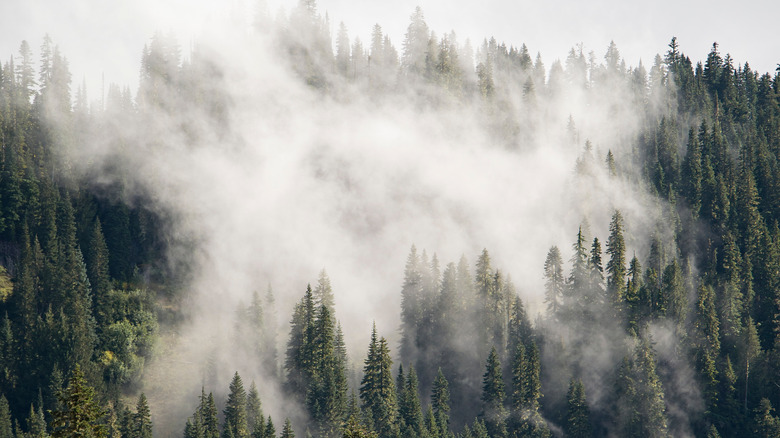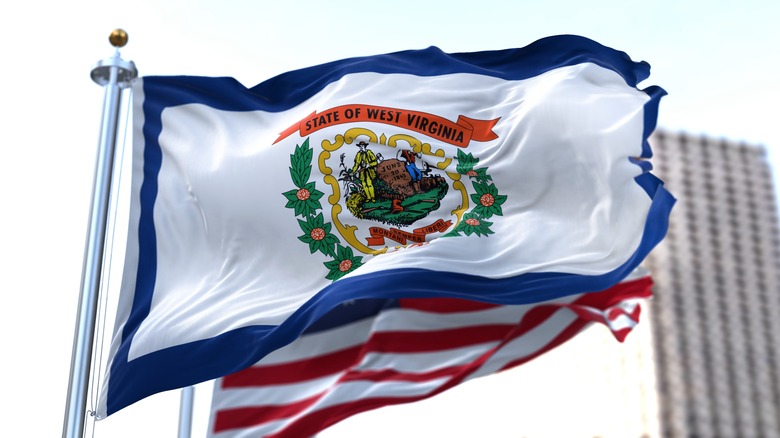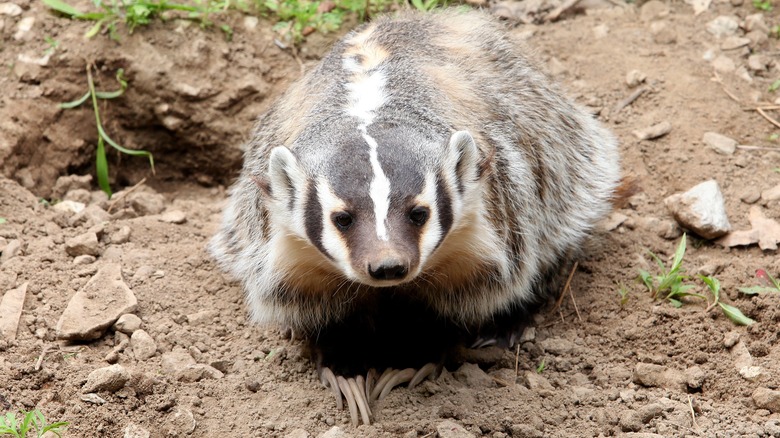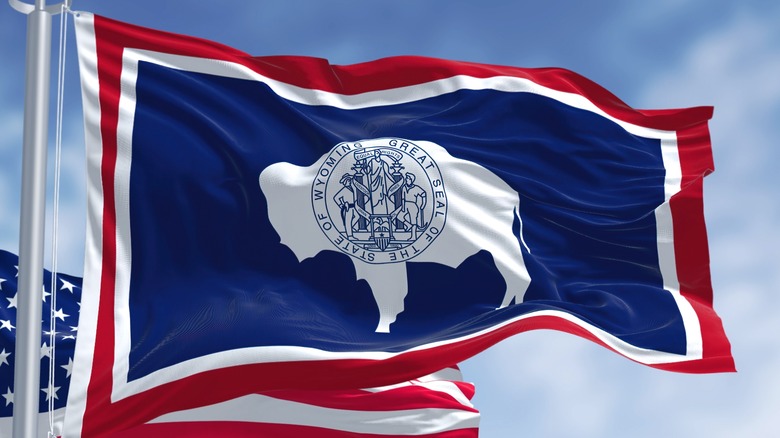Every State Nickname Explained
Each of the 50 states in the United States of America has been called by a nickname at some point in its storied history. These nicknames are often as unique as the states themselves. They appear emblazoned on state license plates, in tourism campaigns, and in the names of popular sports teams — but where these nicknames came from is not always so obvious.
Some, like New York's "Empire State," were bestowed on the state by an important historical figure, such as a president or general. Others, like California's "Golden State," reference a foundational moment in the history of that particular state. While several others, like Missouri's "Show-Me State," have origins shrouded in mystery — leading to the birth of some fascinating theories.
Here, we take a look at the main nickname(s) for each of the 50 U.S. states and explore the story — sometimes historical, sometimes foundational, sometimes mysterious — behind the famed moniker.
Alabama
Alabama has several nicknames, including The Yellowhammer State and the Heart of Dixie.
Per United States Now, the term Yellowhammer State comes from the name of a partially yellow woodpecker called a yellowhammer. During the Civil War, some Alabama soldiers wore partially yellow uniforms, so they too became known as yellowhammers. Soon, all people from Alabama were being called yellowhammers.
Alabama's nickname used to be the Cotton State, but some legislators felt that growing cotton wasn't specific enough to the state of Alabama. As recounted by AL.com, sometime in the mid-1900s, the Alabama Chamber of Commerce promoted a new slogan, "Heart of Dixie," to replace it.
Alaska
Alaska is now known as The Last Frontier because of its natural beauty and swaths of wilderness yet to be properly explored (per The Atlantic.)
When Alaska was first purchased by the United States in 1867, however, Americans called it by less flattering monikers, including "Seward's Folly," "Seward's Icebox," and a "Polar Bear Garden." As described by History, the then-Secretary of State William Seward supported American expansion. At the time, this was an unpopular move both in Congress and in the press, which used the above nicknames in their headlines to mock the purchase.
Arizona
Arizona is often called The Grand Canyon State. As stated by the National Park Service, Grand Canyon National Park is located entirely inside the state of Arizona and brings millions of tourists to the state every year.
However, as historian Marshall Trimble explained to Tucson.com, for nearly 50 years, Arizona was called The Baby State. This is because since 1912, it had been the most recent addition to the United States — until Alaska took its place in 1959. It was also sometimes called The Valentine State, because it officially became a U.S. state on February 14.
Arkansas
Before the Civil War, Arkansas was widely known as The Bear State because of its large bear population. Another early nickname for Arkansas, according to the Arkansas Democrat Gazette, was the Rackensack State.
It was also sometimes called The Toothpick State, a reference to the "Arkansas toothpick," a term used for the Bowie knife, named after Jim Bowie, who legend says used the "big knife" in a 1927 duel (per the Encyclopedia of Arkansas). Later nicknames were designed to change the country's view of Arkansas. These included The Wonder State and Land of Opportunity.
In 1995, the official nickname of Arkansas was changed to The Natural State.
California
California is known as The Golden State or El Dorado. Per the State of California Capitol Museum, the state's nickname references the Gold Rush. Gold was discovered in Sacramento Valley in 1848 (via History), and California was never the same again, as thousands of prospectors swarmed to California in search of gold. The state's population boomed as a result, adding some 100,000 non-native people to the territory by the end of 1949, a growth of 100% over a year's time.
Colorado
Colorado is often called The Centennial State. "Centennial" means the hundredth anniversary, and Colorado earned this nickname by becoming a state 100 years after the Declaration of Independence was signed.
Per the Library of Congress, Colorado became the 38th state in the United States of America on August 1, 1876. The Colorado territory turned out to be rich in gold, and thousands flocked to the territory to try to make their fortunes. Colorado actually had to try to become a state twice because its initial attempt was vetoed by President Andrew Johnson, but in 1876, it was officially declared a state.
Connecticut
Connecticut was dubbed The Constitution State because some believe that Connecticut had the first constitution ever written. Per the Connecticut State Library, this theory refers to "The Fundamental Orders," which was a set of rules for the government and community written in 1638 and 1639.
Connecticut is also called The Nutmeg State because, purportedly, there was a time when the people of Connecticut were running a scam selling fake nutmegs, carved from wood. However, as the story goes, Connecticut nutmeg sellers were actually selling genuine nutmegs, but their customers in the South believed nutmegs could be cracked like other nuts, rather than grated. When they couldn't get them to open, they believed they had been scammed.
Delaware
Delaware's official nickname is The First State because in 1787 it became the first colony to ratify the United States Constitution, making itself a state. As described by Delaware.gov, Delaware has also been called "the state that started a nation" for the same reason.
Delaware gained several other nicknames during the Revolutionary War. It's sometimes referred to as The Diamond State because Thomas Jefferson once referred to the state as a strategic jewel. It has also been called The Blue Hen State, because Revolutionary War soldiers from Delaware are believed to have brought Blue Hen roosters with them and staged cockfights for entertainment.
Florida
Florida's official nickname is The Sunshine State, because of its famously warm, mild, and sunny climate. Per United States Now, Florida is sometimes called The Peninsula State or The Gulf State because of its geography: It's a coastal state surrounded by water on three sides. Sometimes, it's called The Orange State and The Flower State, both of which refer to oranges and their blossoms.
Florida has also been nicknamed The Everglades State, a reference to the large marshy wetlands that can be found in Florida, and The Alligator State, for one of the most famous animals that makes its home in those everglades.
Georgia
Georgia is known as The Peach State. However, as noted by Smithsonian Magazine, in modern times, Georgia is responsible for less than 5% of all peaches grown in the United States. Georgia's connection to peaches is intentional, though. Per NPR, Georgia was trying to change its image after the end of slavery by promoting itself as an exporter of peaches, not cotton. While peach festivals were part of an image of a friendlier, more progressive South, Black Georgians were not often given meaningful roles in peach festivals, and Black workers were still the primary laborers harvesting peaches.
Hawaii
Hawaii is officially designated The Aloha State. The word aloha is a favorite of tourists, and is commonly translated to mean both "hello" and/or "goodbye," as well as "welcome" and "best wishes." Per U.S. News & World Report, Hawaii was officially designated The Aloha State the same year it was officially made a U.S. state: 1959.
It's also called The Youngest State, because it's the most recent addition to the United States. Another nickname for Hawaii is The Pineapple State, because of the amount of pineapples Hawaii grows and exports.
Idaho
Originally, it was claimed that "Idaho" was derived from a Native American word meaning "Gem of the Mountain" (via the Idaho Geological Survey). This led to Idaho's nickname The Gem State, but in reality, the moniker was a part of Idaho's bid for official statehood, trying to make the territory seem more appealing.
Per History, making Idaho a state was politically contentious. Republicans opposed Idaho becoming a state, as many of its potential voters were members of the LDS church and almost entirely Democrats. When legislation was passed making it illegal for members of the LDS church to vote, on the grounds that they were polygamous, The Gem State was officially admitted to the union.
Illinois
Illinois has been The Prairie state for more than 175 years, but since 1955, the state's official nickname has been the Land of Lincoln. Per the Journal Star, Lincoln's early political career was devoted to representing the people of Illinois.
In the 1800s, however, Illinois was called The Sucker State. As noted by the Illinois Times, there are different explanations for this, including the practice of prairie-dwellers using long straws to suck water up out of deep watering holes. It may also have begun as a derogatory term for Illinois workers and migrants, comparing them to a species of migrating fish, as well as to sprouts that grow around tobacco plants. Known as "suckers," these sprouts, if not removed, will drain the plant of its resources.
Indiana
For almost 200 years, the state of Indiana has been known as The Hoosier State, and the origin of this nickname, according to the Indiana Historical Bureau, is still debated. One possibility is that a successful businessperson from the state of Indiana, whose last name was Hoosier, hired out laborers referred to as "Hoosier's men," a name that over time may have become associated with all people from Indiana.
Some others believe that Indiana accents caused people to mishear the question "Who's there?" as in "hoosier." Similarly, the term "hushing" refers to beating someone in a fight, and it's possible that the people of Indiana used to be so successful at fighting, they were once called "hushers," which may have eventually evolved into "hoosiers."
Iowa
In the early 1930s, an Iowa judge named David Rorer and a newspaper editor named James Edwards dubbed Iowa The Hawkeye State, but no one knows for certain why. Per United States Now, some believe Rorer and Edwards were fans of James Fenimore Cooper's "The Last of the Mohicans," latching on to the name "Hawkeye," the novel's protagonist. Others suspect they were inspired by a man named Black Hawk, who, according to Britannica, was a leader of Sauk, Fox, Kickapoo, and Ho-Chunk people in the region that's now southeastern Iowa.
Kansas
Kansas has several nicknames, but the most popular is The Sunflower State. Sunflowers grow wild in Kansas and is the official flower of the state, per the Kansas Historical Society.
The state is sometimes, however, also known by a stranger nickname: The Jayhawker State. The original meaning of the word "jayhawker" is still debated by historians, but it's believed it used to refer to roving troops during the Civil War who raided and looted along the border, targeting both Northern and Southern states. It's possible that this title may have been applied to Kansas soldiers, and later, all people from Kansas.
Kentucky
Kentucky is known as The Bluegrass State, a reference to the state's prairies and the bluegrass plants that fill them, per WDRB. While Kentucky bluegrass is probably the most famous and popular type of bluegrass, there are actually more than 500 species of bluegrass, making it the largest genus in the grass family (via Britannica).
Fact: Kentucky bluegrass actually comes from Eurasia.
Louisiana
Louisiana is called The Pelican State; the pelican is the state's official bird. Its state seal and flag also feature an enormous white pelican caring for three young pelicans in a nest (via Louisiana.gov).
According to Country Roads Magazine, William C.C. Claiborne made an eagle the official symbol of the Territory of Orleans, but when the territory became the 18th U.S. state, the Louisiana symbol changed to a pelican. Historians have theorized it has to do with Louisiana's Catholic roots. A pelican is sometimes used as a Christian symbol of self-sacrifice, referring to the belief that if its young were starving, a pelican would offer its own flesh to help them survive.
Maine
Approximately 90% of the state of Maine is made up of forest, which explains its nickname, The Pine Tree State (via the Library of Congress). Thanks to this abundance of pinewood, most of Maine's industry is wood-based. Maine's other popular nickname also refers to a thriving Maine industry: Vacationland, a slogan that's been associated with the state since 1936, per the Press Herald. Every year, millions of tourists visit Maine to participate in winter sports, explore hiking trails, and experience the state's natural beauty.
Maryland
Maryland has two popular nicknames: The Old Line State and The Free State.
Maryland's regiments in the Continental Army were called The Maryland Line. As described in the Archives of Maryland Online, it's believed that the title Old Line State was given to Maryland by George Washington himself during the Revolutionary War, after many Maryland soldiers were killed at the Battle of Long Island.
According to Maryland Manual On-Line, Maryland was first referred to as The Free State in 1864, when the state's constitution abolished slavery. The event was celebrated with the firing of guns, ringing of bells, and waving of flags throughout Baltimore.
Massachusetts
Before Massachusetts was a state, it was a colony established by the Pilgrims. Its official name, the Massachusetts Bay Colony, was given by the Puritans who settled in the area after the Pilgrims. The name "Massachusettes" refers to the Massachusett tribe, which, the Library of Congress explains, translates to "a large hill place."
The Old Colony State and The Bay State are Massachusetts' most well-known nicknames. For the latter, Britannica notes the moniker was likely inspired by the Massachusetts coastline, which features many embayments.
Michigan
Michigan has been known as The Wolverine State for over 150 years, but surprisingly, until the year 2004, there had never been a wolverine seen in the state.
Per the University of Michigan (mascot: Wolverines), one theory is that the French settlers who arrived in the 1700s were thought of as having voracious appetites and were mocked as "wolverines." Another theory dates back to the Toledo War, which was fought between Michigan and Ohio in 1803. Some say the people of Ohio mocked the people of Michigan as greedy wolverines, while others believe that the people of Michigan named themselves wolverines because of their ferocity.
Minnesota
Minnesota is known as "L'etoile du Nord," which translates to The Star of the North. Per CBS News, this phrase was adopted by the state of Minnesota in 1861, when Minnesota was the state that was furthest north in the Union. The star was a reference to the North Star, which many use to navigate and symbolizes the leadership role that Minnesota hoped to take on for the nation. The phrase is officially in French to honor the state's early roots; many of the first white settlers in Minnesota were French-Canadian.
Mississippi
The state of Mississippi has several nicknames relating to the state's flora and fauna. The most popular of these is The Magnolia State, for the several species of magnolia trees that grow there. Per Mississippi Encyclopedia, the magnolia has become a symbol of the South in general, and Southern cultural experiences and beliefs are sometimes described as being from "behind the magnolia curtain." During the Civil War, when Mississippi was a part of the Confederacy, a magnolia flag flew over what was referred to as the Sovereign Republic of Mississippi.
Missouri
Missouri is known as the Show-Me State. Per the Missouri Secretary of State website, one explanation is that, in 1899, a Missouri representative named Willard Vandiver made a speech in which he declared that the hardworking people from the state of Missouri were not impressed by eloquent language and if you wanted them to believe something you would have to show them.
Around the same time there was a mining strike in Colorado and scabs from Missouri were brought in to keep the mine running. However, these out-of-state miners didn't have experience, and the legend states that if someone was from Missouri, others would have to "show them" how to get the job done.
Montana
Montana's official nickname is The Treasure State, a references to the state's many natural resources, particularly minerals, according to United States Now. The Library of Congress notes Montana is often referred to as Big Sky Country because the state's sky can appear larger than in more densely populated states with urban cities.
Another nickname, Last Best Place, was coined by William Kittredge in a 1988 book about Montana's history, per The New York Times. Like Big Sky Country, Last Best Place evokes the benefits of living in a place with lots of unpopulated land.
Nebraska
Both of Nebraska's most popular nicknames come from its food industry. It's sometimes referred to as The Beef State because of the large amount of cattle farmed in the state. However, as the Library of Congress explains, Nebraska is best-known as the Cornhusker State. Nebraska farmers grow a lot of corn, and have since before the invention of modern farming equipment. Before they had access to husking machinery, Nebraska farmers had to husk their corn manually.
Nevada
Nevada is known as The Battle Born State because it officially became a state during the Civil War (per the Nevada Legislature). It's also sometimes called The Sagebrush State. Sagebrush is the state flower and is found all across the Nevada desert.
Per United States Now, however, Nevada's official nickname is The Silver State because of the prolific silver mines there. During the 19th-century gold rush, hopeful prospectors surged into the West looking for gold, and in Nevada, they found silver. So successful was silver mining in Nevada that when it officially became a state during the Civil War, it was a major source of funding support for the Union army.
New Hampshire
New Hampshire's most popular nickname is The Granite State, which references New Hampshire's many granite quarries (per NH.gov). New Hampshire may be better known by its motto, however: "Live Free or Die." As noted by Valley News, this phrase is often attributed to a general from the Revolutionary War named John Stark. Originally, the state's motto was supposed to be "Strong and Steadfast as the Granite HIlls," but the official vote came on the day that the allies won WWII in Europe, and in a fervor of patriotism, "Live Free or Die" won out.
New Jersey
New Jersey's nickname, The Garden State, dates back to 1926, and possibly even earlier, with some crediting Benjamin Franklin with first identifying the state in a similar way, per NJ.gov. When "The Garden State" was due to be added to New Jersey's license plates in 1954, there was some pushback. While New Jersey may at one time have been a food source for neighboring states, some in 1954 argued that the state had little connection to farming anymore, or gardening of any kind. Despite this opposition, New Jersey was officially labeled The Garden State, and remains so today.
New Mexico
The state of New Mexico is often called The Land of Enchantment. In 1935, New Mexico's director of state tourism Joseph Bursey was looking for a new phrase to promote the state. Per the New Mexico Secretary of State website, Bursey found inspiration in a 1906 book by Lillian Whiting titled "Land of Enchantment." Within a year, the phrase was being used in numerous tourism campaigns to draw people to New Mexico, and by 1999, it had become the state's official nickname.
New York
New York is famously called The Empire State. Per United States Now, the moniker not only is New York's official nickname and found on all NY license plates, it gave its name to the famous Empire State Building. As the New York Historical Society and NYC Media explain, it's believed this term originated with a letter from George Washington before he become the nation's first president. In 1784, Gen. Washington wrote to the New York Common Council, and referred to New York as "the seat of the empire," and the nickname stuck.
North Carolina
North Carolina has two popular nicknames: Old North State and The Tar Heel State. Per the North Carolina Museum of History, the former dates back to when the colony Carolina was divided in two in 1712, because the Northern settlement was older. The origins of The Tar Heel State, per Our State, are more mysterious. One theory is that North Carolina used to make a lot of Naval stores like tar and pitch. Another popular legend claims the term comes from a gibe from the 1860s about gluing down soldier's boots to keep them from running away.
North Dakota
Per the State of North Dakota, North Dakota's nickname, The Peace Garden State, refers to the International Peace Garden that's located between North Dakota and Manitoba, Canada. The state also has a number of unofficial nicknames like The Flickertail State, a reference to a kind of ground squirrel found in North Dakota, and The Roughrider State, which refers to Teddy Roosevelt's Spanish-American War volunteer army. Several of Roosevelt's cavalrymen were from the state of North Dakota.
Ohio
Ohio's most common nickname is The Buckeye State, and the people of Ohio are often called "buckeyes." Per Ohio.gov, "buckeye" refers to the seeds of Ohio's state tree. Some believe the term buckeye was originally a compliment, claiming it meant that early Ohio settlers were excellent shots. Others, however, believe the term buckeye was originally an insult for Ohio residents, because later settlers of the state believed those who came before them were like the buckeye seed: soft.
Oklahoma
Oklahoma is known as The Sooner State, and the people of Oklahoma are called "sooners." According to History, in 1889, the U.S. government had pushed the indigenous peoples off of their land in Oklahoma to make room for white settlers. Officially, they were not allowed to start moving in and staking claims on the land until 12 p.m. on April 22, 1889, but some didn't bother to wait for the official start time. These people were referred to as "sooners," a nickname that soon spread to the entire state. By 1907 when Oklahoma became a state rather than a territory, the people of Oklahoma were proudly calling themselves "sooners."
Oregon
Oregon's nickname, The Beaver State, refers to its official state animal, the beaver. The state has a complex history with the animal; at one time, it was at the center of Oregon's booming fur industry. The Oregon Encyclopedia explains that over the course of less than 20 years, Oregon settlers massively over-hunted the beavers. For many years Oregon's beaver population struggled to recover, but recently, the state has managed to reintroduce their state animal to its original territory.
Pennsylvania
Pennsylvania's nickname, The Keystone State, points to the pivotal role it played in the formation of the United States. As noted by History, it was in Philadelphia, Pennsylvania, that the Continental Congress met, and where the Declaration of Independence and the Constitution were written.
Keystone is an architectural term for the stone at the center of an archway. For the people of Pennsylvania, this central stone, which supports all the others in the structure, symbolizes the role Pennsylvania had in the formation of the country, per the Commonwealth of Pennsylvania.
Rhode Island
Rhode Island has several different nicknames, but its official one is The Ocean State. The Rhode Island Government explains this is because, despite its famously small size, Rhode Islad has 400 miles of shoreline. The nickname was introduced in the 1970s to attract tourists to the state's beaches. Rhode Island's many harbors on its coastline also earned it the nickname The Southern Gateway of New England. The state has also been unofficially nicknamed Little Rhody and The Smallest State, because it's the smallest state in the Union.
South Carolina
South Carolina is sometimes referred to as the Palmetto State. As described by Britannica, palmetto trees are a kind of palm tree which grow in Southeastern states like South Carolina. As noted by the South Carolina State House, the tree, which is featured on the state seal and state flag, symbolizes a 1776 victory over the British by Colonel William Moultrie, a beloved Revolutionary War figure from South Carolina. During the June 28th battle Moultrie and his men were able to defend a fort made from the wood of Palmetto trees.
South Dakota
Some of South Dakota's nicknames, like The Mount Rushmore State, simply refer to things in the state, but some of them are far stranger. Per Black Hills Pioneer, South Dakota has been called The Sunshine State, The Blizzard State, and The Land of Infinite Variety because of the amount of different climates and terrains in the state. Bizarrely, it's also nicknamed the Swinged Cat State. The story behind the swinged cat nickname doesn't do much to explain the strange moniker, but in 1890, the governor described the state as "a swinged cat, better than she looks."
Tennessee
Tennessee is known as The Volunteer State, not because its citizens regularly donate their time to charities or their community, but because of the state's historical willingness to voluntarily enlist in the Army. This nickname originated during the War of 1812, when , a large number of men from Tennessee volunteered to fight. The Tennessee Historical Society notes this was repeated some 40 years later in the Mexican American War when President Polk requested ~3,000 men join the Army and 30,000 from Tennessee signed up.
Texas
Texas is often known as The Lone Star State. As The Dallas Morning News explains, this nickname dates back to 1839, when Texas declared its independence from Mexico and adopted a red, white, and blue flag with a single star on it: the Lone Star.
Per History, after its war with Mexico, Texas wanted to become a part of the United States, but its pro-slavery stance and the prospect of further conflict with Mexico made it unappealing to the U.S. For almost 10 years, Texas was an independent republic. Although Texas was eventually admitted to the Union (leading to the Mexican-American War), the Lone Star nickname has endured.
Utah
Utah is often called The Beehive State, but not because the state has any particular connection to beekeeping. Rather, as the Utah State Capitol explains, the beehive is a symbol for hard work and community. Further, BYU notes the beehive symbol has a deeper religious meaning for the members of the Church of Jesus Christ of Latter-day Saints because it was used by Brigham Young.
Utah remains The Beehive State, but in 2022, it gained a new moniker (for a day) when Gov. Spencer Cox officially declared Utah's nickname on April 12, 2022, would be "The Be Kind State," as part of an awareness campaign encouraging compassion.
Vermont
Vermont's most popular nickname is The Green Mountain State, which is the actual meaning of the state's name "Vermont." "Vermont" is derived from the French phrase vert (green) and mont (mountain), per the Library of Congress.
The term "Green Mountain" is a major part of Vermont history, and was popularized during the American Revolution. Britannica explains that the Vermont militia, called the "Green Mountain Boys," sprung up to defend the property rights of the people of Vermont and became Revolutionary War folk heroes under Ethan Allen and Benedict Arnold, capturing Fort Ticonderoga.
Virginia
While Virginia has been called the "Mother of Presidents" and the "Mother of States," its most commonly used nickname is probably Old Dominion. This term dates back to before the United States of America existed. Not only was Virginia one of the original 13 colonies, the Virginia Colony was the first and oldest of England's claimed territories in the Americas (via Encyclopedia Virginia).
Per History, Jamestown (settled in 1607) was the first settlement in the Virginia colony. These settlements were sometimes known as "overseas dominions" of the English monarch, making Virginia the Old Dominion.
Washington
The Evergreen State is Washington State's most common nickname, although it's not official. The nickname refers to Washington's many forests of trees which do not lose their foliage in winter, per the Washington State Legislature.
Linguist David Douglas Robertson notes Washington's first nickname was The Chinook State, named for the Chinookian peoples that lived in the region before it was declared Washington territory in 1864. When Washington became a state in 1889, the only nickname on record was "Chinook State."
West Virginia
West Virginia's most popular nickname, The Mountain State, refers to the fact that it's the only state that's entirely in the Appalachian Mountains, per National Geographic.
According to the West Virginia State Archives, the state almost had a different name altogether: Kanawha. This name referred to a Native American tribe and an enormous river and valley in the state. Ultimately, however, it was decided that the counties forming a new state didn't want to leave Virginia behind entirely, and the new state was dubbed West Virginia instead.
Wisconsin
Wisconsin is known as The Badger State. Though the nickname is now beloved by the people of Wisconsin, it was once an insult. According to the Wisconsin Historical Society, in the late 1800s, many people in Wisconsin were miners. It's believed that early settlers were either unable to afford to build homes or didn't have time after arriving before heavy snows began, so they were forced to live, work, and sleep inside the mines. The people of Wisconsin spent so much time underground, that others called them "badgers."
Wyoming
Wyoming's most popular nickname is The Equality State, a moniker that dates back to 1869, when Wyoming became the very first state to grant women the right to vote, per The Atlantic. Though there were few women living in the territory at the time they were granted the right to vote in December 1869, it's believed that those who did live in Wyoming exercised their right as soon as possible, voting in the 1870 election. According to the Wyoming Historical Society, passage of the Women's Suffrage Act of 1869 extended to women of color who were over 21 years of age and U.S. citizens.
